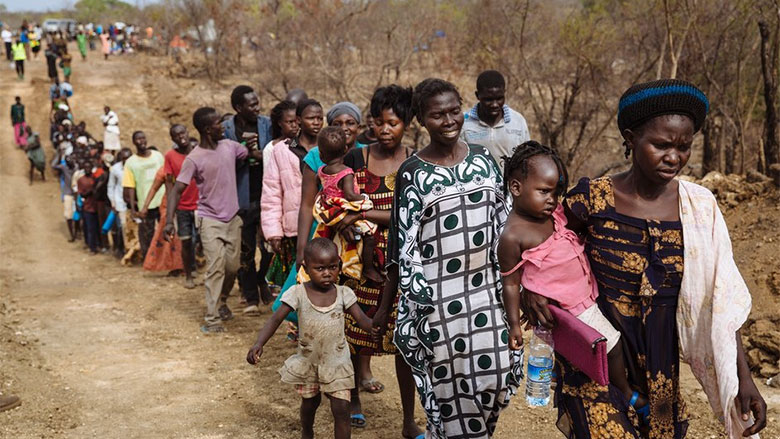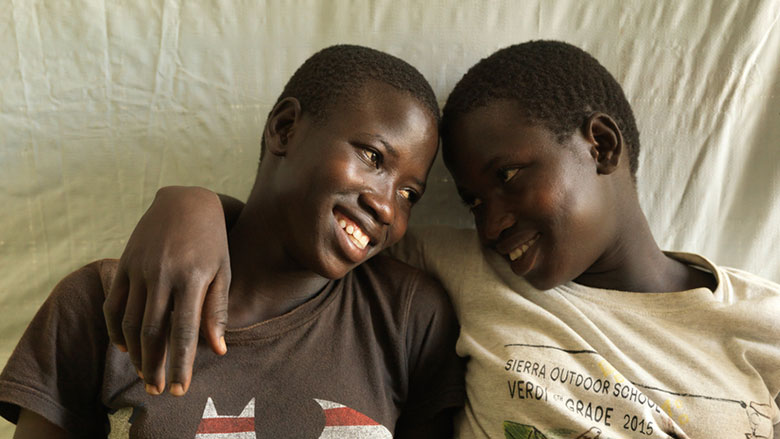Today, there are close to 1.4 million refugees living in Uganda, placing it among those countries in the world with the largest number of refugees. Unlike many countries hosting refugees, however, Ugandan policy allows most refugees to move freely inside the country, and to work and use public health care and education. Some were even granted land to cultivate crops and build on.
But continued refugee influxes from South Sudan are putting a strain on host communities in northern Uganda, with local government authorities and agencies struggling to provide basic services. In response, the World Bank is now increasing its support to assist the Ugandan government to cope.
Uganda has become eligible for substantial, additional financial support, through a new and innovative financing sub-window housed under the 18th replenishment of the International Development Association (IDA18), the Bank’s fund for the poorest countries. This financing sub-window has $2 billion to help with longer term solutions for both refugees and their host communities.
Uganda meets all the criteria needed to access this financing. It has integrated refugee management and protection into its national development agenda, through its Development Plan (2016–2020) and its Settlement Transformation Agenda (STA). These will support development in districts hosting refugees—through investments in infrastructure, livelihoods, and initiatives for peaceful coexistence and environmental protection.

Eligible for financing for refugees
Uganda is a pilot country for the Comprehensive Refugee Response Framework called for in the New York Declaration for Refugees and Migrants. This is expected to result in a more coherent and robust response to mass exodus through the complementarity of programming and resourcing.
A key component of it is the Refugee and Host Population Empowerment (ReHoPE) strategic framework, supported by the Bank, the UN’s Country Team, and other humanitarian and development actors in Uganda. ReHoPE aims to bring partners together in a harmonized and cohesive manner under the government’s leadership to overcome fragmented programming and bridge the gap between humanitarian and development support.
The World Bank is contributing financially to ReHoPE through the Development Response to Displacement Impacts Project, which includes a $50 million credit for Uganda aimed at improving access to basic social services, expanding economic opportunities, and enhancing environmental management for communities hosting refugees.
The additional IDA18 financing will allow it to scale up support for retaining a progressive approach to refugee management, as reiterated during the Uganda Solidarity Summit on Refugees in June 2017.

The Bank will also support policy dialogue and investment financing and knowledge, focusing on (i) boosting resilience to refugee shocks, in part by supporting the integration of the refugee response in sectoral strategies and district development plans; (ii) enhancing self-reliance and long-term socio-economic development in areas that host refugees; and (iii) strengthening the effective coordination of humanitarian aid and development assistance.
Other countries, including Cameroon, Chad, the Republic of Congo, Djibouti, Ethiopia, Niger, and Pakistan have been found eligible. Collectively, these countries host 4.1 million refugees, or 60% of the total number of refugees living in IDA countries.
The current global refugee crisis is the biggest and most complex to have been faced by this generation to date. It will take strong partnerships—humanitarian, development, peacebuilding, civil society, and private sector—to drive sustainable solutions to it.
Original source: World Bank
Published on 4 December 2017

